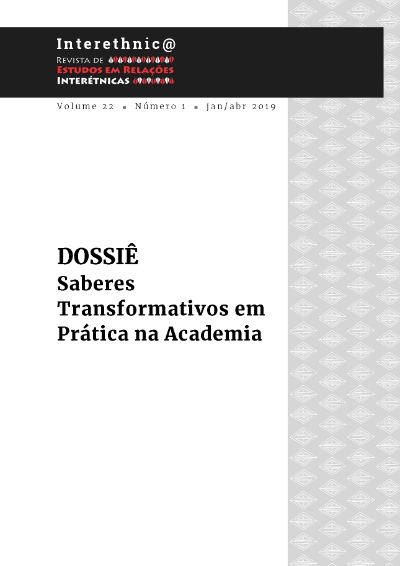Colonization on indigenous women
Reflection on cares of the body
DOI:
https://doi.org/10.26512/interethnica.v22i1.20530Keywords:
Colonization, Indigenous Women, Interethnic RelationsAbstract
This article seeks to present a reflection, starting from the point of view of an indigenous woman, an activist who defends indigenous and women 's rights, interpretively and from an indigenous women' s perspective. Our aim is to point out how actions of colonization, starting from the churches violated the right to cultural practices of Baniwa women, in the context of caring of the body, justified by "taboos and things of the devil", which is the result of violent contact with the indigenous peoples. For that, a reflection is necessary, starting from the statements of women interviewed, calling attention to the silent practice of violence that violated the right to use millennial knowledge and indigenous science. In the end, we leave the message: to what extent churches are good or bad in women's lives, reflecting this normalization of practices in indigenous communities.
Downloads
Downloads
Published
How to Cite
Issue
Section
License
COPYRIGHT AND EXCLUSIVITY
At the time of submission, authors undertake not to send this manuscript to another journal during the reviewing process. Conversely, the Journal does not accept articles that are still under review in other journals. Neither will it accept two simultaneous reviews of the same author, understanding that this constitutes simultaneity.
Submission automatically implies full assignment of the copyright, including translation, if the article is approved for publication. Authors may reproduce their articles, provided that the original source (Interethnic Journal) is cited
GOOD SCIENTIFIC PRACTICES
TAll submitted articles will be submitted to plagiarism and "self-plagiarism" or republishing (publication as unpublished material of texts already published). Eventual cases of bad practice will be examined and decided by the editorial committee according to the guidelines of the National Council for Scientific and Technological Development (CNPQ).
The integrity of the content of the articles is the sole responsibility of the authors.



